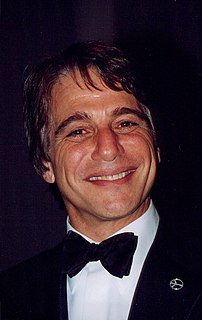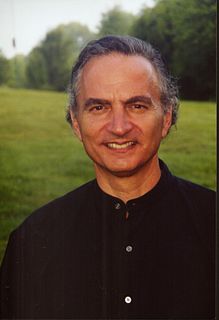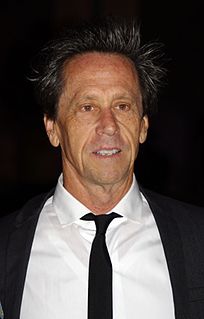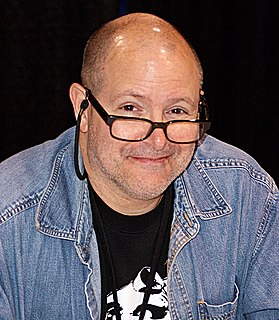A Quote by Sarah Paulson
We're constantly, as human beings, trying to understand why we do what we do and how we got to wherever we find ourselves today. Sometimes it takes a lot of time to look back and go, 'I can't believe I spent one day with that person, much less two years.'
Related Quotes
We're all doing time. As soon as we get born, we find ourselves assigned to one little body, one set of desires and fears, one family, city, state, country, and planet. Who can ever understand exactly why or how it comes down as it does? The bottom line is, here we are. Whatever, wherever we are, this is what we've got. It's up to us whether we do it as easy time or hard time.
There are novels that end well, but in between there are human beings acting like human beings. And human beings are not perfect. All of the motives a human being may have, which are mixed, that's the novelists' materials. That's where they have to go. And a lot of that just isn't pretty. We like to think of ourselves as really, really good people. But look in the mirror. Really look. Look at your own mixed motives. And then multiply that.
The Dalai Lama once said that every human being has two fundamental desires: to be happy and free of pain. I'm interested both in helping people and myself achieve these and also, in the process, finding out what our full potential is as human beings. In essence, there's so much unconsciousness about how/what we eat and how we live which creates the problems that people face. I see so many sick and suffering people when I go on my lecture tours and, if I can help someone find their way back to a life worth living, that's a good day's work.
I've got to stop getting obsessed with human beings and fall in love with a chair. Chairs have everything human beings have to offer, and less, which is obviously what I need. Less emotional feedback, less warmth, less approval, less patience and less response. The less the merrier. Chairs it is. I must furnish my heart with feelings for furniture.
You have to understand your own psychology. You have to understand that human beings weren't really designed to invest. We have all these emotions that are appropriate responses if you're being chased by a tiger, but they're terrible responses if you've got a 30-year time horizon to think about investment or when you're trying to manage investment over 30 years.
Wherever we are, any time of night or day, our bosses, junk-mailers, our parents can get to us. Sociologists have actually found that in recent years Americans are working fewer hours than 50 years ago, but we feel as if we're working more. We have more and more time-saving devices, but sometimes, it seems, less and less time.
Steve Jobs did not start started Apple as a scam. But he understood early on the power of marketing. The idea of the computer as a bicycle for the human mind - I think that was something he believed. He believed in making people comfortable with these machines, which is why he spent so much time thinking about how to design them a certain way, how to make them so user-friendly and interactive, and why he spent so much time studying the Zeitgeist.
How much courage does it take to fire up your tractor and plow under a crop you spent six or seven years growing? How much courage to go on and do that after you've spent all that time finding out how to prepare the soil and when to plant and how much to water and when to reap? How much to just say, "I have to quit these peas. Peas are no good for me, I better try corn or beans.



































